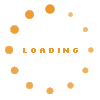Continuous Medical Cataract Knowledge#
 |
Medical Background #
In the ophthalmology, the so called cataract surgery is the most important surgical intervention with about 700.000 operations/year only in Germany. The old fix and cloudy human lens can remouved and must replaced by a new clear intraocular lens (IOL). Because of no prevention or medical treatment, the operation itself should be performed in patient related best manner. Concerning optimisation of surgical interventions at human eyes, a knowledge based assistant system is developed, to support the ophthalmic surgeons before real intervention at human eyes.
Methods #
The clinical expert knowledge is available in frame and rule-based structures. The main advantage of the computer-based support is the intelligent correlation of the whole cataract environment and the possibility of giving decision support for the surgeons by logical explanation. The passive knowledge is done by wikipedia-like presentation. The visualisation is given by semantic net structures and supports knowledge acquisition and explanation by a natural language access.
Aims#
The clinical experts can simulate the operation process by logical decisions and analyse the results of the simulated operation. So, for complex processes the decisions and parameters can be changed. Another feature is the function as tutorial system for young surgeons. The project WISSASS (Wissensbasiertes Assistenzsystem in der Kataraktchirurgie) is sponsored by the german Federal Ministry of Economics and Technology (Bundesministeriums für Wirtschaft und Technologie - BMWi) in Berlin. In health care, advanced patient contentment and reduced postoperative costs are the main goals to develop such a computer-based decision support system for opthalmic surgeons. The project is performed by the national research center in Karlsruhe (KIT) and the specialized company denkbares GmbH in Würzburg, together with clinical partners in Karlsruhe.
The WISSKONT project considers the creation of an intelligent information system in the medical domain of cataract surgery. The system is currently under development and it will support the ophtalmologist during the treatment process before, in-between, and after the cataract surgery. That way, the system needs to present relevant knowledge of the domain, which is integrated at varying degrees of formality. For instance, textbook content with images describe particular aspects of a treatment process, whereas temporal relations of the treatment phases are represented by ontological annotations. Here, informal content is correlated by ontological relations. In consequence, a semantic search mechanism provides the presentation of the relevant information at any stage of the treatment process. Additionally, for a number of decision tasks occurring during the treatment, distinct decision-support modules are created, e.g., the selection of an appropriate lens for the surgery based on the patient’s parameters. The integration of formalized and informal knowledge allows the ophtalmologist to verify the recommendations of the knowledge base by analyzing the comprehensive support information provided with the recommendation.
The WISSKONT project is part of the WISSASS project, a cooperation of the Karlsruhe Institute of Technology, Germany (KIT) and the denkbares GmbH. It is funded as a ZIM-KOOP8 project by the German Federal Ministry of Economics and Technology (BMWI).

